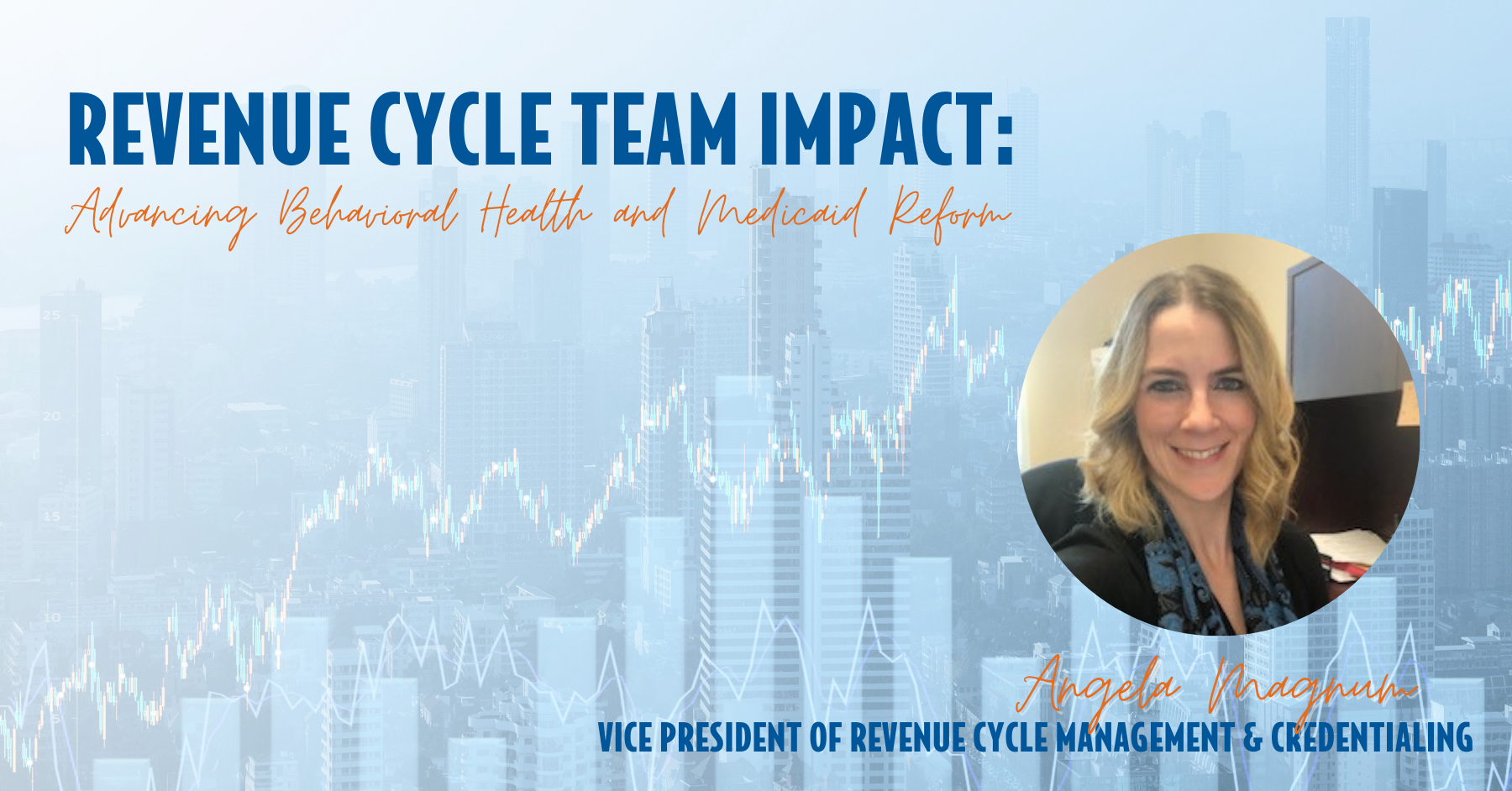By Angela Mangum, Vice President of Revenue Cycle Management & Credentialing
WestCare Nevada has played a pivotal role in shaping the evolving landscape of the behavioral health sector in Nevada. As the healthcare industry continues to transform, there has been an increased emphasis on the need for robust behavioral health services in the community. Recognizing this, the State of Nevada has been working on developing a more specific provider type for Substance Use providers, aligned with ASAM levels of care, ensuring a structured and supportive network that is reimbursable through Medicaid.
The revenue cycle is the process by which organizations track and manage the financial aspects of their operations, from the initial interaction with a customer or patient to the final payment for services or goods provided. In the context of healthcare, it specifically refers to the process of managing the financial transactions and interactions that occur as a patient receives care. The revenue cycle is crucial for a healthcare organization’s success because it directly impacts its financial health.
Over the past several years, WestCare Nevada, along with the Revenue Cycle Management (RCM) team, has dedicated significant efforts to building trust and compliance with both state authorities and payers. Their commitment to transparency and collaboration has positioned them as a trusted leader in the behavioral health community. Through active participation in open forums and public hearings, the revenue cycle team has successfully brought attention to critical issues such as variances in Managed Care processes and regulations surrounding Medication-Assisted Treatment (MAT), Residential Treatment, and Partial Hospitalization. Their input has been consistently backed by evidence-based practices, CMS guidelines, and ASAM regulations, further solidifying their influence.
As the new provider type and Medicaid chapter were being developed, Medicaid administration frequently sought out WestCare’s revenue cycle team for feedback and guidance. This collaboration led to significant changes, including adjustments to the 1115 waiver, which works to allow Medicaid to fund residential treatment. The RCM team’s advocacy highlighted concerns with Managed Care organizations’ readiness, issues with changes in length of stays, and the need for increased infrastructure.
Additionally, RCM’s leadership was instrumental in driving changes to the State’s Plan Amendment (SPA), allowing MAT services to be individually billable across all levels of care. These efforts helped the state recognize the need for inclusivity in service offerings, which will now enhance revenue opportunities and access to care for qualified clients.
One of the most significant changes influenced by WestCare’s RCM team was the revision of provider requirements for partial hospitalization. Previously restricted to hospitals or FQHCs, the new guidelines now allow any provider properly licensed and accredited by the state or an accrediting body to offer ASAM 2.5 services. This change directly resulted from concerns raised by the RCM team during the Medicaid chapter draft review and public hearing process in June.
WestCare Nevada’s leadership and revenue cycle management team’s strong and transparent relationships with funders have been crucial to these advancements, ensuring that the organization continues to Uplift the Human Spirit in the lives of WestCare’s clients by significantly influencing behavioral health benefits and covered care in the state.




